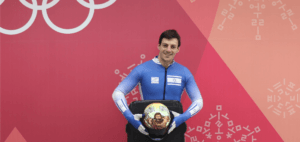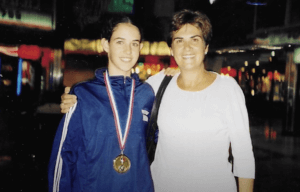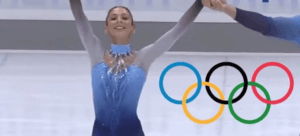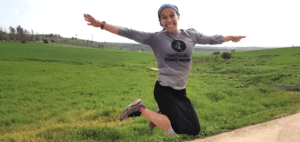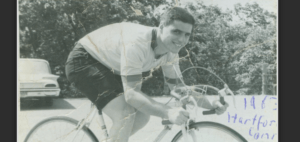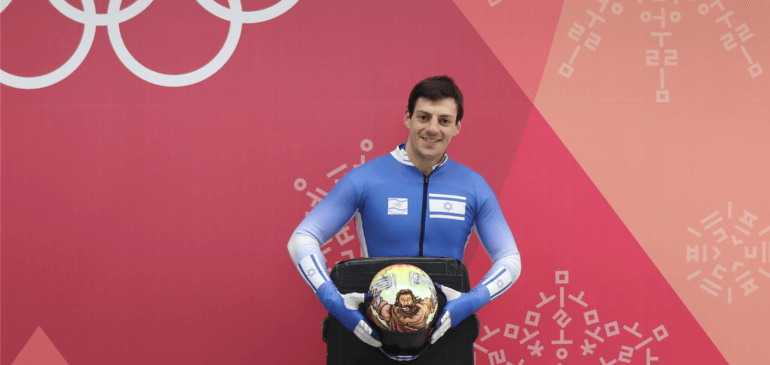
The Orthodox Jews Of The Olympics
The Paris Olympics have featured several Israeli winners, but what about observant Jews? How many Orthodox Jews have reached the planet’s most competitive sports competition? The world of sports usually does not accommodate Jewish observance, which has hindered the professional success of some of the top athletes from the observant Jewish world. And yet, they have all held to their convictions, putting their Jewish identity as their most prized win. Here is a round-up of Orthodox athletes we’ve featured before – a few Orthodox Jewish All Stars, some who made it to the Olympics, some who got close, and others who remain hopefuls.
Who Made It
#1 AJ Edelman
Sport: Bobsled
Competed for: Israel
Competed in: 2018 Winter Olympics in PyeongChang, South Korea
Aiming for: 2026
Edelman is the first Orthodox Jew to compete in the Winter Olympics and the first Orthodox Jewish man to make it to the Olympics ever. He’s an American who competed for Israel in skeleton for that 2018 Winter Olympics in Pyeongchang, South Korea. “Before every race, I would say say ‘Shir Hama’alos Esai Einai El HeHarim.’ I turn my eyes towards the mountains. Tefillah is a confidence booster. It focuses me on why I’m doing what I’m doing, and it gives me confidence that Hashem actually cares about [me].” Edelman is training for the 2026 Olympic Games
[Related reading: How Leading Yom Kippur Prayers Helped Me Get To The Olympics]
#2 Bat-El Gatterer
Sport: Taekwondo
Competed for: Israel
Competed in: 2008 Summer Olympics in Beijing, China
Bat-El Gatterer was the first ever female Orthodox Olympian. She is a Taekwondo athlete who got her start in the sport, because it was the only available after school program in her town that fit into her mother’s work schedule. Bat-El’s observance doesn’t slow her down: “Once, in Germany, I walked three hours in the snow [on Shabbos]. And when I get to the competition, I was like, how you say, “a snowman.” And two minutes after I get there, they called me to the fight….[laughs]…But it’s OK. I win.”
#3 Hailey Kops
Sport: Pair Skating
Competed for: Israel
Competed in: 2022 Winter Olympics in Beijing, China
Hailey Kops is the first Orthodox woman to make it to the Winter Olympics. “It had always been a dream of mine to skate for Israel. As a Jewish religious girl raised modern Orthodox, I know that Israel is our home,” she said to Jewish News Syndicate. She and her partner, Evgeni Krasnopolski trained together for three months and finished in the top three in a qualifying event. Skating since she was three, Kops learned from her mother, who is also a champion figure skater. After quitting skating for a bit in her teens and attending an Orthodox Jewish seminary in Israel, she got a call, asking to partner with three-time Olympian Krasnopolski. Although maintaining Shabbos while skating competitively has been a challenge, she makes use of local Chabad houses and walks to competitions. “It’s nice for me to feel that I can still be religious and compete. In the past it was very difficult, but now it’s normal for me to keep Shabbat, keeping kosher, and it’s something I really want to hold on to,” she said.
Hopefuls
#4 Beatie Deutsch
Sport: Marathon Running
Training with: Israel
Aiming for: 2028 Olympics
Beatie Deutsch was a gymnast, not a runner growing up. She only took up running while she was trying to get back in shape after she started having children. After only three plus years of doing marathons Deutsch’s times were so fast, the Israeli Olympic team reached out and invited her to join. Deutsch had a running time that would have qualified her for the 2016 Olympics. She was working to meet the 2020 qualifying time, but the 2020 Tokyo Olympics were rescheduled to 2021 due to COVID. Then, they scheduled the women’s race for Saturday. Deutsch wrote a letter to the International Olympic Committee to make a request: could the marathon be held on a Sunday, rather than Shabbat. Deutsch only began to pursue her initial Olympic competition goal after confirming that the events wouldn’t conflict with Shabbos. Read her letter in which she explains her embracing running, while also overcoming health challenges, and maintaining her observance, modesty level, and identity. Due to races being scheduled on Shabbos or Yom Tov, as well as injuries, Beatie didn’t have an opportunity to qualify for this year’s Olympics, but she’s not quitting yet.
#5 Estee Ackerman
Sport: Ping Pong
Training with: US
Aiming for: 2028

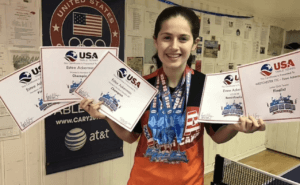 Ping pong prodigy Estee Ackerman started playing casually at home at 7 years old with her brother Akiva when her father realized that she was quite talented. She ranked 6th in the nation for girls thirteen and under; in 2013 she was ranked 4th in the nation for girls under thirteen. Estee has won multiple medals at US Nationals table tennis and has often defeated players 20 to 30 years her senior, including Rafael Nadal. As an adult, she has ranked as high as #21 in the US. (The Olympic team takes the top eight women.)
Ping pong prodigy Estee Ackerman started playing casually at home at 7 years old with her brother Akiva when her father realized that she was quite talented. She ranked 6th in the nation for girls thirteen and under; in 2013 she was ranked 4th in the nation for girls under thirteen. Estee has won multiple medals at US Nationals table tennis and has often defeated players 20 to 30 years her senior, including Rafael Nadal. As an adult, she has ranked as high as #21 in the US. (The Olympic team takes the top eight women.)
In 2016, Ackerman won gold in the Junior Olympics Ackerman and tried out for the regular Olympics, which she only missed by 11 spots. In 2020 and 2024, she was prepared to try out for the Olympics again, but the qualifiers were on Shabbos and US Table Tennis refused to accommodate her. Ackerman is currently 22 years old and a 2028 Olympic hopeful, as long as Shabbos can be accommodated.
[Related reading: Jewish Ping Pong Champion Verbally Assaulted At US Nationals Over Modest Dress]
Who Almost Made It
#6 Sam Zeitlin
Sport: Cycling
Trained with: Israel
In the 1960s, New York-born secular Jew Sam Zeitlin loved cycling and wanted to follow his passion all the way to the Olympics. He trained incredibly hard and even earned himself the nickname, “Brooklyn Lightning.” He made it all the way to the U.S. Pan American Cycling Team and attended the 1967 U.S. Olympic Pre-Trials, where a premature move of raising his arms in victory disqualified him from winning. In the book Living Shabbos by Rabbi David Sutton, it is reported that “One day, [Zeitlin] was nearly knocked off his bicycle as he was training, and someone approached him shouting, “We’ll get you next time, Jew.” Sam realized that as a Jew, he had no chance of making the U.S. Olympic team, and so he decided he would try to get to the Olympics with the Israeli team.” While he attempted to fulfill his lifelong dream in Israel, he was soon be presented with one of the greatest challenges of his life.
Zeitlin was scheduled to teach physical education at a secular school, but when the job fell through, he took one at a more religious school instead. There, he fell in love with Judaism and started observing Shabbos. “Eventually, he became fully observant, hoping that his religious observance would not hinder his dream of competing in the Olympics.” He went so far that he qualified to be a member of the 1972 Olympic Team. But the anti-religious Israeli Olympic Committee told Zeitlin that his competition would be held on Shabbos. On the one hand, the fulfillment of his Olympic dream was at hand. But on the other, he did not want to break his newfound commitment to Shabbos observance. Eventually he withdrew, and turned down the offer to join the team in Munich to represent Israel. There, Palestinian terror cell Black September took 11 members of the Israeli team hostage and killed them all. Shocked, Zeitlin mourned alongside the rest of Israel, as he privately thanked God for saving his life. Zeitlin married and moved back to New York, raising a family in Brooklyn.
If you found this content meaningful and want to help further our mission through our Keter, Makom, and Tikun branches, please consider becoming a Change Maker today.



